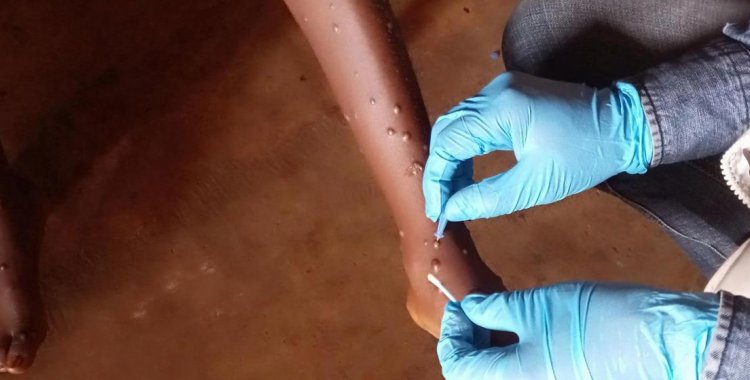"The MPOX epidemic has spread of the Democratic Republic of Congo [RDCongo, a country bordering Angola] to neighboring countries such as Uganda, Burundi and Rwanda, but the continent remains without adequate access to vaccines or medicines," said the Jubilated Professor at the Institute of Hygiene and Tropical Medicine (IHMT) of the New University of Lisbon.
The researcher reiterated that these countries suffering from the epidemic have no means of eradicating the disease and that "the only way to lock MPOX would be through the entire population from sub-Saharan Africa: Senegal [neighboring country of Guinea-Bissau] to northern Mozambique."
In your opinion, a global investment and a homogeneous worldwide action is required to combat viral diseases, which contrasts with the current international funding cuts from the United States.
"These diseases are either eradicated worldwide or are not eradicated," he said.
Due to the scarcity of a network of laboratory in these African countries, the teacher says he believes that the number of reported cases is only "the tip of the iceberg."
However, the infectiologist pointed out that the disease is endemic in the region, so there are "always cases".
For Jaime Nina, the increase in cases is directly linked to discontinuation of smallpox vaccination (eradicated disease since 1980) and structural poverty that forces populations to survive, increasing contact with natural virus reservoirs.
"MPOX is a zoonosis [circulates between animals and humans] with reservoirs in rodents and African primates. When it kills what is to eat, the risk of transmission to humans increases dramatically," he said.
According to the World Health Organization (WHO) the disease was first identified as "monkey smallpox" because in 1958 it was detected in several monkeys of a laboratory in Denmark and resembled the smallpox.
However, viral isolation proved to be a "cousin" of smallpox, originated from animal reservoirs, especially African rodents, in forest zones, stressed the teacher.
Jaime Nina also clarified that the name "Monkeypox" is an incorrect designation: "It's neither smallpox nor is the monkeys," he lamented.
The first case in a human being was notified in 1970 in RDCongo, according to WHO.
The researcher also pointed out that there are two large clades (genetic groups) of the virus: Clade I, central Africa (more lethal), and Clade II of West Africa.
Portugal reported cases of Clade II, the West African variant - from Nigeria to Senegal - from 2022 due to transmission by social contact. However, like most cases in Portugal, and in European countries, it was limited to homosexual men, it was possible to "contain the spread to the general population," Nina explained.
The African Union Health Agency (UA) declared the MPOX a public health emergency of continental safety safety at 13 from 2024 and, the next day, WHO announced the state of international sanitary alert for the disease, a measure that decided to extend.
MPOX is an infectious disease that can cause painful rashes, swelling of lymph nodes, fever, headaches, muscle aches, back pain and lack of energy.







